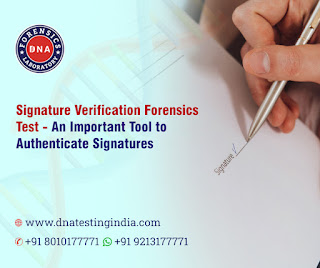Signature validation plays a critical role in verifying the authenticity of document signatures, guaranteeing that they have not been altered or forged. Whether in financial transactions, legal matters, or personal agreements, confirming a signature helps keep security and trust. With technological advancements, modern signature verification methods are becoming more dependable and accessible, making detecting fraud and establishing the legitimacy of documents more straightforward.
Why is Signature Confirmation Important?
Signatures are a widely accepted form of identity authentication. From official documents to bank transactions, a signature symbolizes the signer's consent, approval, or agreement. Following are a few reasons why confirming signatures is critical:
Preventing Fraud: Forged signatures can lead to economic loss and legal intricacies. Confirming signatures assists in identifying discrepancies and preventing deceitful activities.
Ensuring Document Integrity: Confirming a signature verifies that the intended individual has signed the document, ensuring that the content has not been tampered with.
Legal Evidence: A verified signature can be powerful proof in legal disputes. Courts frequently depend on signature validation to determine the realism of agreements.
Banking and Financial Security: In banking, signature validation ensures that only authorized people can issue checks, access accounts, or carry out transactions.
Methods of Signature Confirmation
There are two main methods of signature verification: manual and automated. Each method has benefits, depending on the context in which it is utilized.
Manual Signature Verification: A trained specialist compares the questioned signature with a known authentic sample in manual validation. Factors evaluated during manual confirmation include:
Stroke Pattern- Specialists examine the direction and flow of pen strokes, guaranteeing consistency in the writing style.
Pressure Variation- Pressure applied to the writing surface can leave distinctive impressions, helping differentiate real signatures from forged ones.
Letter Formation- The structure and shape of letters in a signature are carefully analyzed. Dissimilarities in letter formation can suggest forgery.
Slant and Alignment- Another factor specialists consider is consistency in the slant and alignment of letters concerning the baseline.
Automated Signature Verification: Automated systems utilize cutting-edge algorithms and machine-learning methods to liken a signature with stored samples. These systems are typically utilized in banking, where thousands of transactions must be processed accurately and quickly. Automated confirmation involves:
Static Signature Confirmation This method examines the scanned picture of a signature, comparing its size, shape, & position against a stored reference.
Dynamic (Online) Signature Confirmation In this, additional parameters such as the pressure, speed, and timing of the signature are captured utilizing a digital device. This process is safer, as it is difficult to reproduce the dynamics of a real signature.
Common Challenges in Signature Verification
Despite its significance, signature validation faces several challenges:
Variability in Genuine Signatures: An individual's signature may differ due to health, mood, or writing surface. This natural deviation can make validation difficult.
Quality of the Sample: Low-resolution copies or poor-quality scanned photos of signatures can influence confirmation accuracy.
Skilled Forgery: State-of-the-art forgers can closely recite signatures, making detecting fraud challenging for automated and manual systems.
Time Constraints: Manual confirmation is time-consuming and may not be practical for high-volume processes.
Applications of Signature Validation
Signature confirmation is utilized in various industries and sectors:
Banking and Finance: Banks utilize signature confirmation for check processing, account opening, and loan approvals.
Legal Documentation: Legal specialists depend on confirmed signatures to validate wills, contracts, and other essential documents.
Corporate Agreements: Businesses utilize signature verification to authenticate agreements, guaranteeing that only approved personnel sign on behalf of the company.
Government Processes: Many government policies, such as property registration and passport issuance, need verified signatures to assure legitimacy.

Comments
Post a Comment